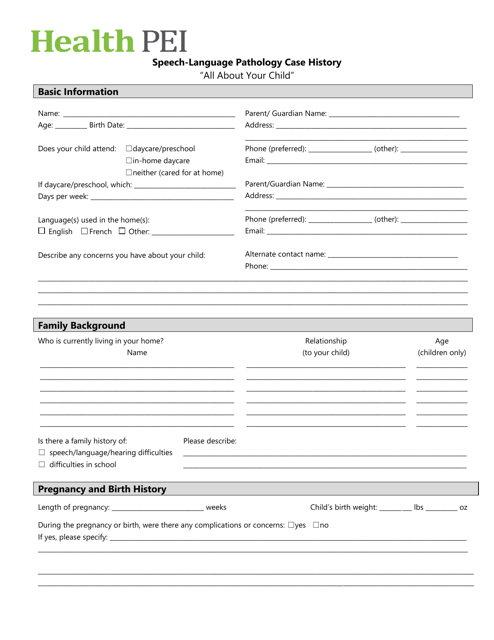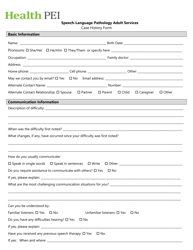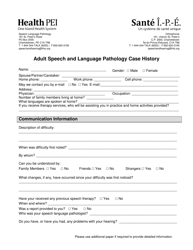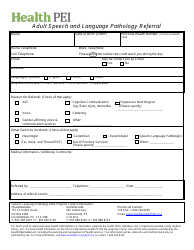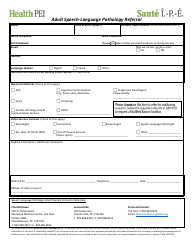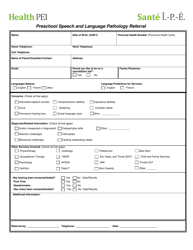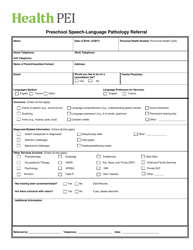Speech-Language Pathology Case History - All About Your Child - Prince Edward Island, Canada
The Speech-Language Pathology Case History - All About Your Child form in Prince Edward Island, Canada is used to gather important information about a child's communication and speech development. This form helps speech-language pathologists assess and understand a child's needs in order to provide appropriate therapy or support.
The Speech-Language Pathology Case History form for children in Prince Edward Island, Canada is typically filed by the child's parent or guardian.
FAQ
Q: What is a speech-language pathology case history?
A: A speech-language pathology case history is a record of a child's speech and language development, as well as any related medical and developmental information.
Q: Why is a speech-language pathology case history important?
A: A speech-language pathology case history is important because it helps the speech-language pathologist understand the child's background, identify potential risk factors, and tailor their assessment and treatment plans.
Q: What information is typically included in a speech-language pathology case history?
A: A speech-language pathology case history typically includes information about the child's birth history, medical history, developmental milestones, communication skills, and any previous evaluations or therapy.
Q: Who completes a speech-language pathology case history?
A: The speech-language pathology case history is typically completed by the child's parents or guardians, with assistance from the speech-language pathologist.
Q: Are speech-language pathology case histories confidential?
A: Yes, speech-language pathology case histories are confidential and protected by privacy laws.
Q: How long does it take to complete a speech-language pathology case history?
A: The time it takes to complete a speech-language pathology case history varies, but it usually takes around 30 minutes to an hour.
Q: What happens after a speech-language pathology case history is completed?
A: After a speech-language pathology case history is completed, the speech-language pathologist will review the information and use it to inform their assessment and treatment plans for the child.
Q: Can parents provide additional information after completing the speech-language pathology case history?
A: Yes, parents can provide additional information to the speech-language pathologist even after completing the case history, as new information may arise or be relevant to the child's speech and language development.
